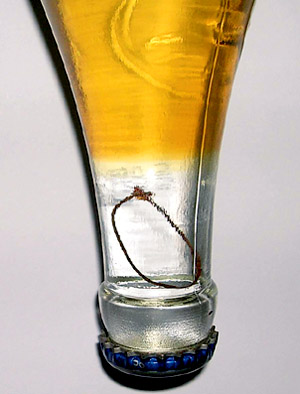|
dailynews |
|
|
|
|
|
OTHER LINKS |

|

|

|
Online portal to update food exporters on HACCP requirements
FOOD QUALITY: An online national portal will be developed for the first time in Sri Lanka to provide information on international requirements on quality standards for all industries in the country. This project will be initiated by the World Trade Organisation (WTO). The objective of developing a national portal is to provide information for all industries including food and non-food industries to obtain information that should fall in line with international quality and standard requirements, Sri Lankan Representative WTO project on SPS Standards, Dr Srilal de Silva said. He said at a time when food safety is receiving significant consideration and the development in EU and other developed countries had made Hazard Analysis and Critical Control Point (HACCP) mandatory for food traded in these countries. Sri Lanka is now facing a severe crisis where food importation is concerned where the EU has made HACCP mandatory for food trade in these countries. At present most tea factories are in the process of obtaining the HACCP certification, which would cost from Rs one to five million for the infrastructure development of each factory. The Ministry of Plantation Industry and the Sri Lanka Tea Board are working in this direction. Dr de Silva, a former Deputy Director General of the Sri Lanka Standards Institute said that in most situations regulations require HACCP systems practised in preparing food products covering the entire food chain. In some instances the legislation are not clear on the method of demonstrating compliances. He further said the national legislations to be developed in farming, transporting, storage etc, as the entire food chain needs to be certified with the ISO 22000, which has been incorporated HACCP as management standard. "The launching of the national portal will help food exporters to obtain information on required safety standards," he said. According to Dr de Silva more than 1,200 food related industries/chains and its related organisations will be in a state of crisis with the imposition of this standard especially to Europe. The products of animal origin such as fisheries exports to EU is certified by a competent authority, which is recognised by national legislation, as well as EU authorities, he said. The establishment of a European Food Safety Authority (EFSA) under regulations has harmonised this recognition process and government should work closely with EFSA and work out a mechanism to operate at national level, Dr. Silva said. He said Baur and Company is the first Sri Lankan company to obtain ISO 22000 on their cinnamon importing section, which is now in the process of introducing other food and food related chains in the future. |








